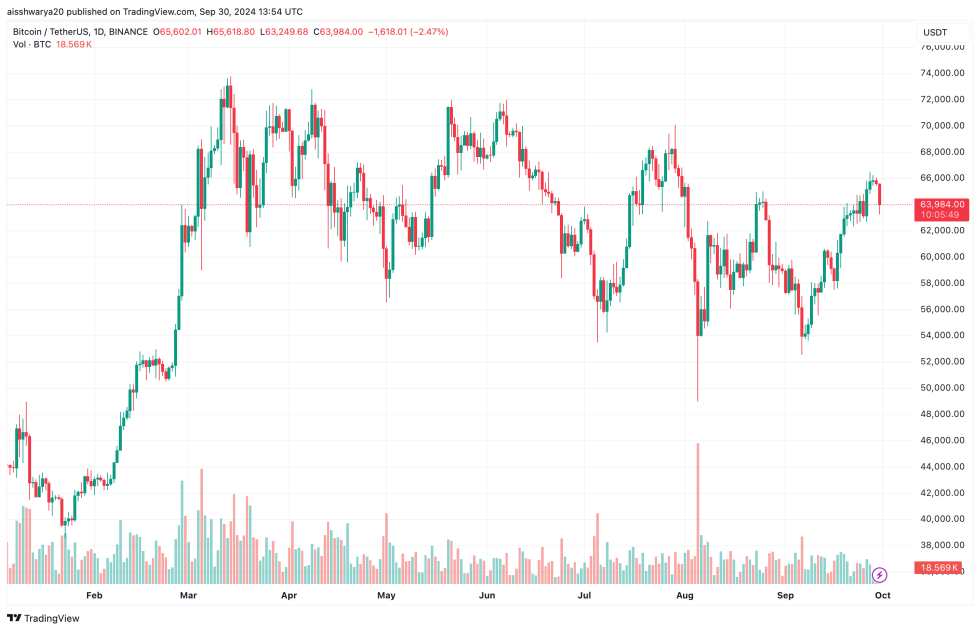In an announcement on September 30, 2024, Taiwan’s Monetary Supervisory Fee (FSC) greenlit overseas crypto exchange-traded funds (ETF) for skilled traders.
International Digital Belongings ETFs Authorised For Skilled Buyers
In accordance with the announcement, Taiwan’s FSC permits institutional traders to put money into overseas digital asset ETFs by way of a re-entrustment course of. The announcement notes:
Skilled traders embrace skilled institutional traders, excessive web value funding authorized individuals, high-asset purchasers, authorized individuals or funds belonging to skilled traders, and pure individuals belonging to skilled traders.
For the uninitiated, re-entrustment is a course of the place one celebration delegates funding administration to a different, who then transfers that duty to a 3rd celebration. This enables establishments to put money into specialised property – together with overseas crypto ETFs – by way of trusted intermediaries, guaranteeing correct oversight and experience whereas accessing world markets.
In Taiwan’s context, Taiwanese establishments can now delegate funding administration to native monetary establishments. They will then assign a overseas asset supervisor to deal with the funding in these crypto ETFs. This course of facilitates seamless entry to world crypto markets whereas guaranteeing that native regulatory oversight and threat administration practices are adopted.
The choice follows a interval of deliberation with the Securities Enterprise Affiliation (SBA) regarding the dangers related to crypto ETF investments. The monetary regulator has granted institutional purchasers permission to have interaction with overseas crypto ETFs.
Nonetheless, a number of circumstances have to be met earlier than securities companies or traders can put money into overseas crypto ETFs.
First, they have to develop a “suitability system” permitted by their board of administrators. Additional, they have to gauge the consumer’s stage of experience with digital property earlier than making or facilitating investments in crypto ETFs.
As well as, purchasers searching for to put money into crypto ETFs by way of re-entrustment should signal a threat warning earlier than the preliminary buy. The securities vendor also needs to present digital asset ETF-related commodity data earlier than the consumer makes any buy.
The FSC emphasised that it’ll preserve a detailed eye on securities companies participating with the ETF funding enterprise, guaranteeing their regulatory-compliance, promotion traders’ rights, and boosting market competitiveness.
Contrasting Angle Towards Crypto In Asia
Whereas Taiwan’s choice displays a rising curiosity in digital property, different elements of Asia stay hesitant to embrace the rising asset class attributable to its perceived volatility.
As an example, the Korea Institute of Finance (KIF) just lately raised considerations in regards to the potential opposed results of spot ETFs on the South Korean financial system.
Equally, the Japanese monetary regulator has pressured the necessity for “cautious consideration” concerning approving crypto ETFs. Apparently, nonetheless, a latest survey discovered that Japanese institutional traders have gotten more and more receptive towards digital property.
In distinction, the Hong Kong monetary regulator – the Hong Kong Securities and Futures Fee (SFC) – permitted the primary spot Bitcoin (BTC) ETF in April 2024. BTC trades at $63,984 at press time, down 2.7% up to now 24 hours.

Featured Picture from Unsplash.com, Chart from TradingView.com















